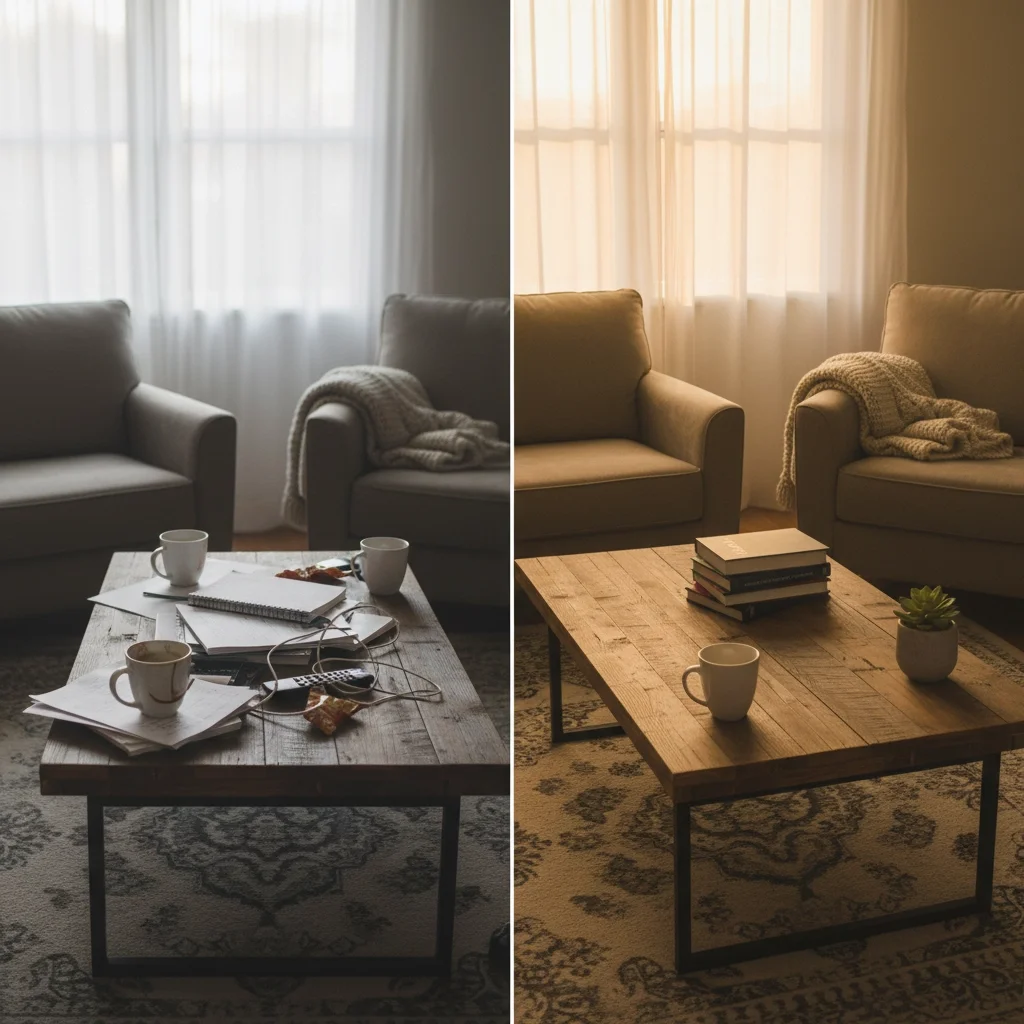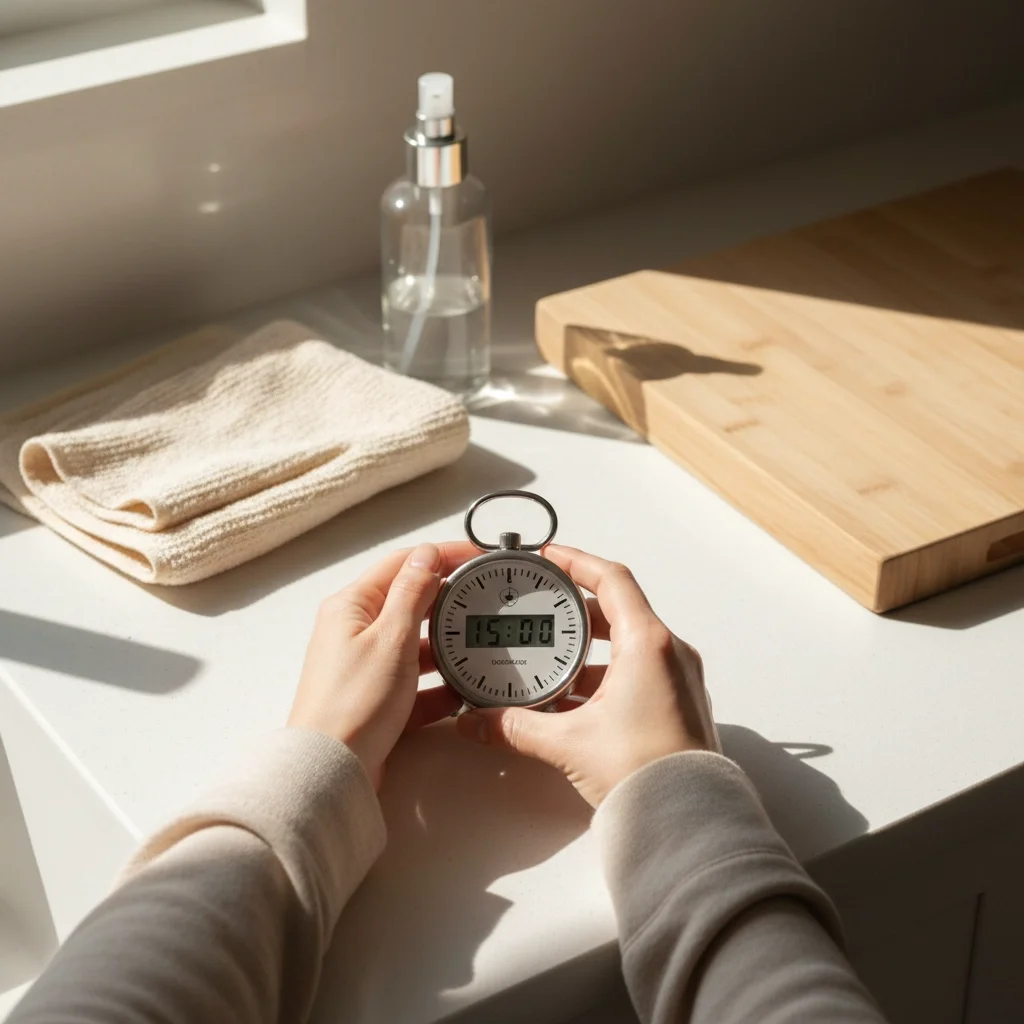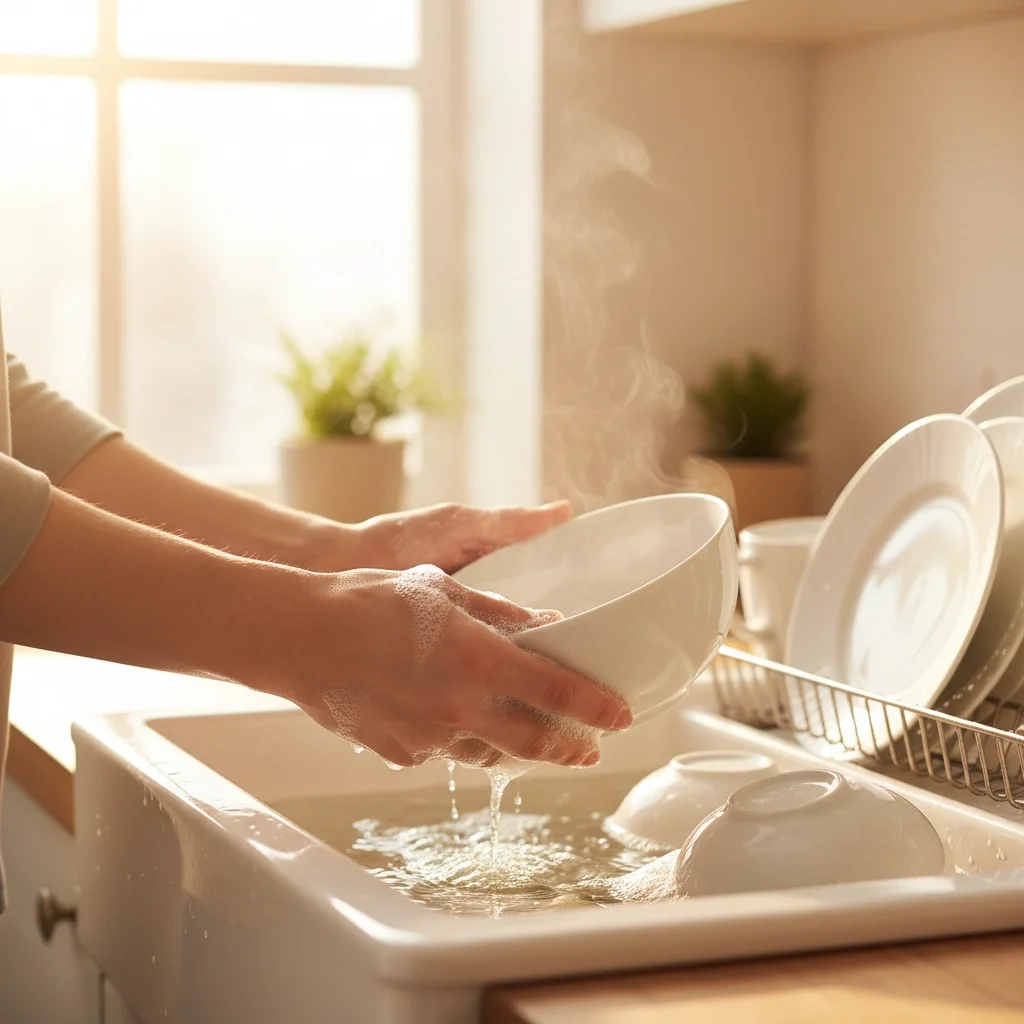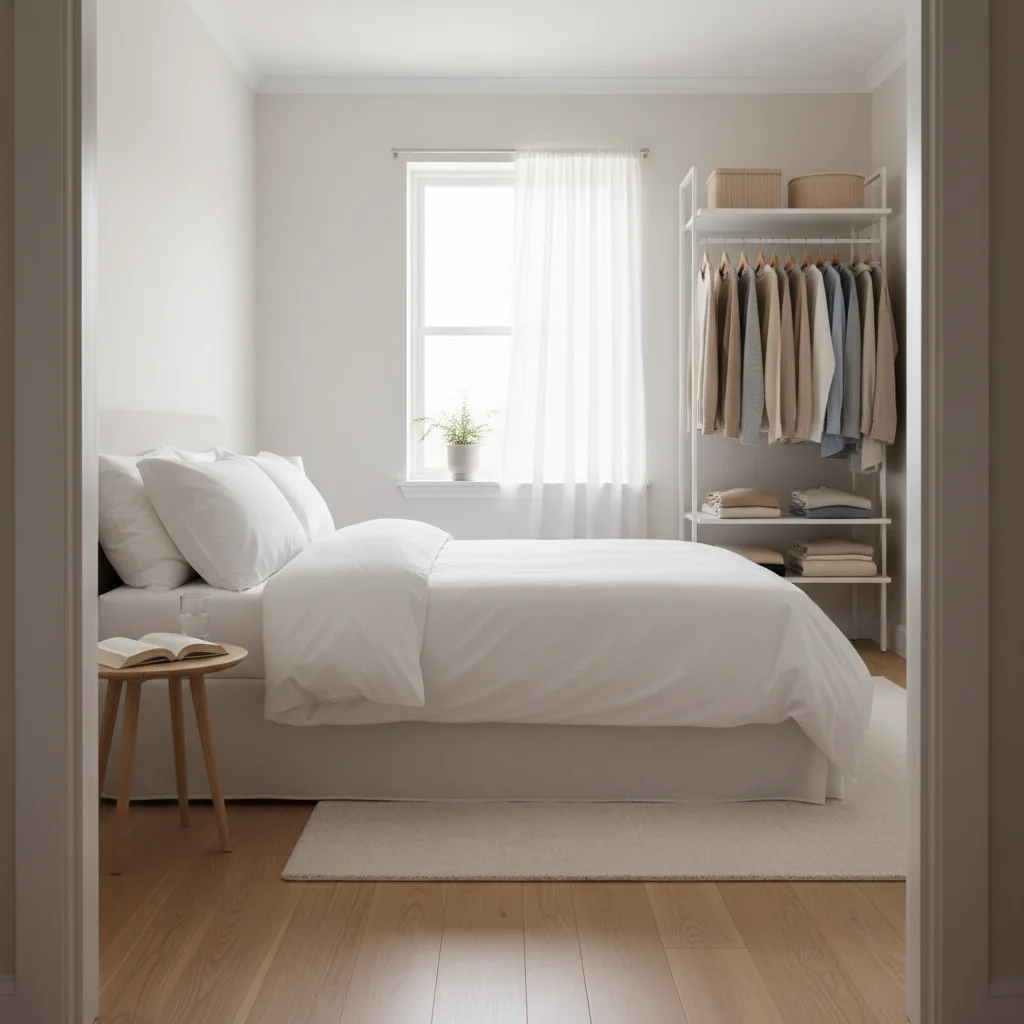Mental Health and Cleaning
One thing at a time: a little sweeping
Don't worry if your house isn't magazine-perfect right now. The truth is, your mental health and your cleaning habits are way more connected than you might think. When you're struggling emotionally, keeping up with housework becomes incredibly difficult: and that's completely normal.
You're not lazy, unmotivated, or failing at being an adult. You're human, and sometimes life gets overwhelming. Let's talk about what's really happening and what you can do about it.
When Your Mind Makes Cleaning Feel Impossible
Depression steals your energy
If you're dealing with depression, you already know how it zaps your motivation. Getting out of bed feels like climbing a mountain, so tackling a sink full of dishes? Forget about it. Depression doesn't just make you sad: it literally affects your brain's ability to focus and complete tasks.
You might look around your space and feel overwhelmed by everything that needs to be done. That pile of laundry has been there for weeks. The bathroom needs attention. But your brain just can't seem to connect the dots between seeing the mess and taking action.
This isn't about caring less. Your brain chemistry is working against you, making even simple tasks feel insurmountable.
Anxiety turns cleaning into a monster
Anxiety works differently but creates similar problems. You see the mess and immediately feel overwhelmed. Your mind starts racing: "Where do I even start? This is going to take forever. What if I don't do it right?"
The more you think about cleaning, the bigger and scarier it becomes in your mind. So you avoid it entirely. But then the mess gets worse, which makes the anxiety worse, which makes the avoidance worse. It's a cycle that feeds on itself.
One thing at a time: book by book
ADHD makes focus nearly impossible
If you have ADHD, cleaning can feel like trying to solve a puzzle while someone's changing the pieces. You start cleaning the kitchen, then notice the living room needs work, then remember you need to do laundry, then get distracted by something else entirely.
Before you know it, you've started six different cleaning tasks and finished none of them. Your space might actually look worse than when you started, which is frustrating and discouraging.
The Vicious Cycle Nobody Talks About
Here's what makes this whole thing so tricky: when your mental health makes cleaning difficult, the messy environment actually makes your mental health worse. It's like being stuck in quicksand: the more you struggle, the deeper you sink.
A cluttered, dirty space increases stress and anxiety. It's harder to relax when you're surrounded by chaos. You might feel ashamed when people come over, which leads to isolation. The mess becomes a constant reminder that you're "not keeping it together," which feeds negative thoughts about yourself.
But here's the thing: this cycle can be broken. You just need to know how to approach it differently.
Start Where You Are, Not Where You Think You Should Be
The one-thing rule
Forget about deep cleaning your entire house. That's not happening today, and that's okay. Pick one small thing: one load of laundry, one section of counter, one bathroom surface. Complete that one thing and call it a win.
Small wins build momentum. When you accomplish something, anything, your brain releases a little hit of dopamine. That good feeling makes it slightly easier to tackle the next small thing.
The 15-minute timer trick
Set a timer for 15 minutes and clean anything you want during that time. When the timer goes off, you're done. No pressure to finish everything perfectly.
This works because 15 minutes feels manageable, even when you're struggling. Often, you'll find that once you start moving, you want to keep going. But if you don't, that's fine too: you still accomplished 15 minutes of progress.
One thing at a time: 15 minutes of mindfulness
Make it mindful, not mindless
Turn cleaning into a form of meditation. Focus on the warm water on your hands while washing dishes. Pay attention to the satisfying feeling of wiping down a surface. Notice how the space looks and feels as it gets cleaner.
This mindful approach serves two purposes: it makes cleaning more pleasant, and it gives your anxious mind something specific to focus on instead of spiraling into worry.
When Your Brain Needs Different Strategies
For depression: Start with self-care spaces first
When you're depressed, begin with the areas that directly impact your daily self-care. Clean the bathroom sink where you brush your teeth. Make your bed. Clear enough space in the kitchen to make a simple meal.
Taking care of these basic areas helps you take better care of yourself, which can slowly improve your mood and energy levels.
For anxiety: Break everything into tiny steps
Instead of "clean the kitchen," try:
Put dishes in dishwasher
Wipe down counters
Put items back where they belong
Sweep floor
Write each step down if it helps. Checking things off a list gives you a sense of progress and control.
For ADHD: Use body doubling and timers
Clean while someone else is around, even if they're not helping. This "body doubling" helps with focus and accountability. Set multiple short timers throughout your cleaning session to help you stay on track.
One thing at a time: dishes
Building Sustainable Habits That Stick
Connect cleaning to existing routines
Don't try to create brand new cleaning habits from scratch. Instead, attach small cleaning tasks to things you already do consistently.
Load the dishwasher while your coffee brews. Wipe down the bathroom counter while you're brushing your teeth. Put clothes away when you're getting dressed.
Lower your standards (seriously)
Perfect is the enemy of done. A load of laundry that's clean but not folded is still clean laundry. A bed that's pulled together but not perfectly made still looks better than a completely unmade bed.
Give yourself permission to do things "good enough" instead of perfectly. This takes the pressure off and makes cleaning feel more achievable.
Know When to Get Help
Professional mental health support
If you're consistently struggling with motivation, energy, or overwhelming feelings, talking to a therapist or counselor can make a huge difference. They can help you develop coping strategies and address the root causes of your struggles.
Mental health treatment isn't just about feeling better: it's about functioning better in all areas of your life, including maintaining your living space.
Consider a cleaning service
Sometimes the best thing you can do for your mental health is to get professional help with cleaning. A service like Leave It Better Cleaning can reset your space, giving you a clean slate to work with.
When your environment is clean and organized, it's easier to maintain and much easier on your mental health. You're not giving up or failing: you're making a smart choice to support your wellbeing.
One thing at a time: making bed
The Bigger Picture
Your worth as a person isn't determined by how clean your house is. You're dealing with real challenges that make everyday tasks more difficult, and that's not a character flaw.
Mental health struggles are medical conditions, not personal failings. Just like you'd get help for a broken leg, it makes sense to get support for your mental health: and that includes getting help with the tasks that feel impossible when you're struggling.
The goal isn't to have a perfect home. The goal is to create a space that supports your wellbeing instead of adding to your stress. Sometimes that means adjusting your expectations. Sometimes it means getting professional help. And sometimes it means being gentler with yourself while you figure it out.
Your mental health affects everything in your life, including how you maintain your living space. But with the right strategies and support, you can break the cycle and create an environment that actually helps you feel better instead of worse.
Start small, be patient with yourself, and remember that asking for help: whether from a therapist, a friend, or a professional cleaning service ( is a sign of wisdom, not weakness.)






